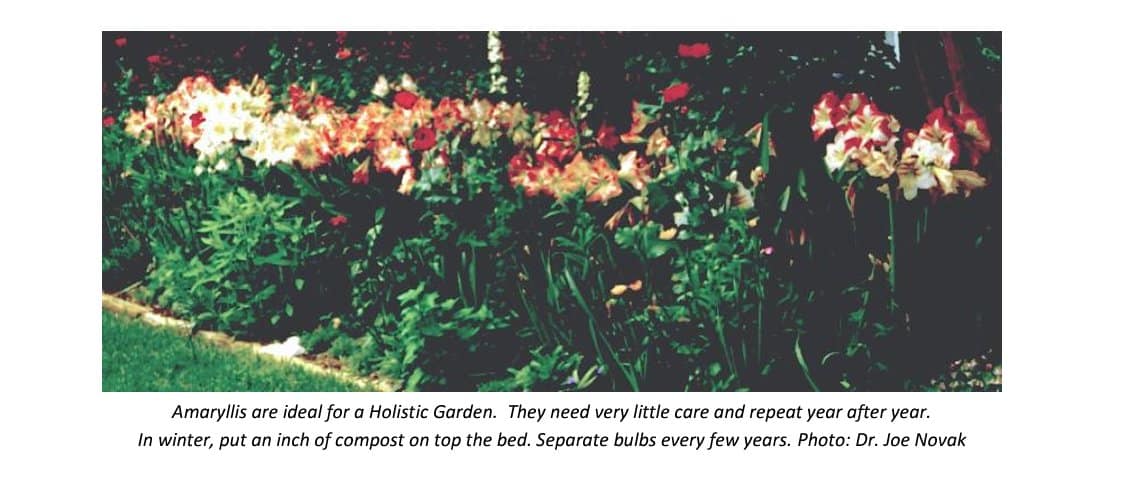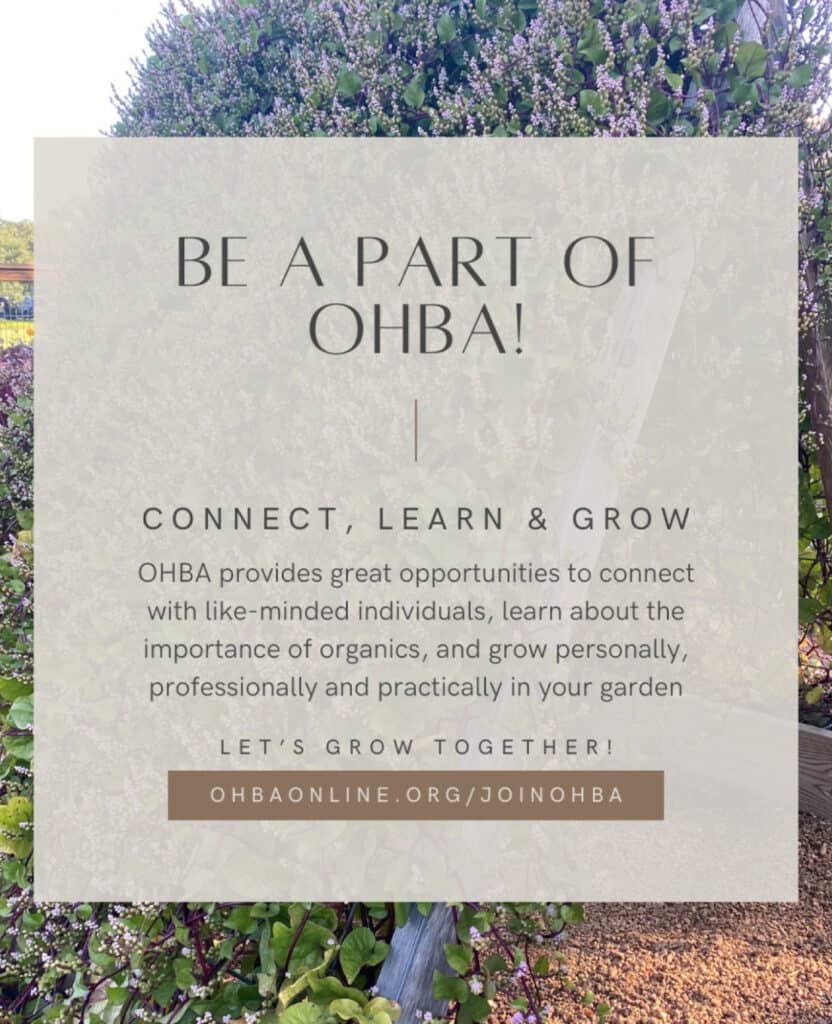SOCIOHORTICULTURE – THE HOLISTIC GARDEN
By Joe Novak sociohorticulture.com

A holistic garden employs the basic concept of holism – a whole is greater than the sum of its parts. In a holistic garden, interactions among gardeners, plants, animals and environment produce results greater than the sum of individual parts. The interaction of the gardener with the natural ecosystem produces benefits not anticipated. Nature is restorative. Contact with nature reduces mental stress and fatigue and helps us to relax. Our garden is nearby nature. In a holistic garden, the gardener doesn’t fight nature, but works with nature.
The rewards are both physical and mental. Many gardeners say the greatest benefit is the feeling of peacefulness and serenity they experience when in the garden. Vegetables and flowers are important, but the psychological impact was considered more important. Another basic tenet of the holistic garden is that anyone who wants to garden should be able to do so, regardless of ability or disability. Holistic garden design follows the guidelines of the Americans With Disabilities Act so anyone who wants to enter and work in the garden can do so.
Gardening techniques are almost exclusively those of organic gardening, such as:
* Utilization of mulches and composts for soil improvement, weed control and plant fertilization
* Cultural practices other than synthetic chemicals to control pests and diseases and improve the plants environment.
* Encouragement of beneficial microbial organisms below and above ground
* Attraction of desirable wildlife by providing habitat, water and food.
Contemplative design features help a holistic garden become a place for contemplation. The soft fascination provided by nature helps to free our minds so we can think clearly to find solutions to problems. Many wellknown authors, composers, philosophers, artists and statesmen understood the importance of contact with nature and many were avid gardeners. Sociohorticulture is the use of horticulture as a means to improve quality of life for people with special needs, for example people who have physical or mental disorders, those who are declining in their abilities with advancing age, youth at risk, people who have substance abuse problems and those living in neighborhoods that are in decline. The principles of holistic gardening are not only good for our home grounds, but also the best to use in working with special groups of people.
Dr. Novak can be contacted at http://sociohorticulture.com/
* * * ALL THESE FREE LECTURES BY DR. NOVAK will be held at the White Oak Conference Center, 7603 Antoine.
Register atwww.nnmd.org. or or 713-895-8021
* Wed., Jan. 21: Sociohorticulture – The Holistic Garden by Dr. Joe Novak, 7-8:30pm
* Sat., Feb. 7: Starting Transplants for Your Garden by Dr. Joe Novak, 9-11am
* Sat., Feb. 14: Make Your Garden Grow – Really! Garden by Dr. Joe Novak, 9-11am
* Sat., Feb. 21: Composting for the Home Garden Garden by Dr. Joe Novak, 9-11am
* Sat., Feb. 28: Soil Management for the Home Garden Garden by Dr. Joe Novak, 9-11am
* Sat., Mar. 7: Pest ID and Management in the Home Garden Garden by Dr. Joe Novak, 9-11am
* Sat., Mar. 14: Growing Vegetables in Containers Garden by Dr. Joe Novak, 9-11am.

